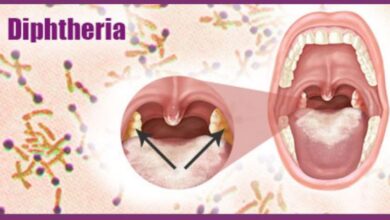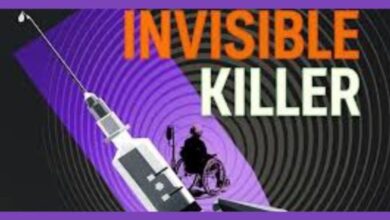What Ashton Kutcher’s Rare Disease Taught Me About Autoimmune Disorders

What Ashton Kutcher’s Rare Disease Taught Me About Autoimmune Disorders (And Why You Should Care) – Let’s be honest: when you think “Ashton Kutcher,” you think That ’70s Show, Silicon Valley investments, or maybe his unexpected activism. What you probably don’t think of is a rare autoimmune disease that left him struggling to walk, hear, or see.
But that’s exactly what happened.
In a 2022 interview, Kutcher opened up about battling vasculitis—a rare, often misunderstood autoimmune condition. It blindsided him. One day he was filming, jogging, strategizing tech startups. The next? His world started to shut down, piece by piece.
Now, I’m not a celebrity. I don’t have a tech portfolio or a sitcom legacy. But when I heard Ashton’s story, it hit home in a way I didn’t expect. Because autoimmune diseases don’t just target famous people—they’re hiding in plain sight, affecting 1 in 10 people, often without diagnosis for years.
So let’s dig in. Because Ashton’s story? It’s not just his—it might be yours too.
What Is Vasculitis—and Why Is It So Dangerous?
Vasculitis literally means inflammation of the blood vessels. Imagine your immune system turning into an overzealous security guard, attacking the very highways that deliver oxygen and nutrients throughout your body.
There are over 20 different types, ranging from mild to life-threatening. Symptoms? Wildly unpredictable.
-
Fatigue that mimics burnout
-
Rashes mistaken for allergies
-
Numbness in limbs
-
Sudden vision or hearing loss
That’s what happened to Ashton. His immune system misfired, inflamed his blood vessels, and began cutting off blood flow to essential organs and senses.
He said:
“You don’t really appreciate it, until it’s gone… I couldn’t walk. I couldn’t see. I couldn’t hear.”
Sound dramatic? It is. But also painfully common.
Autoimmune Conditions Are the Silent Epidemic
Vasculitis is rare. But autoimmunity? That’s a full-blown epidemic.
Over 24 million Americans have diagnosed autoimmune diseases. Millions more go undiagnosed—mislabelled as having “stress,” “anxiety,” or “hormonal imbalance.”
Here’s the scary part: most autoimmune diseases don’t announce themselves loudly. They creep in. They disguise themselves as:
-
Chronic fatigue
-
Brain fog
-
Joint pain
-
Mood swings
-
Digestive issues
In fact, it takes an average of 4 to 5 years to get a proper autoimmune diagnosis. That’s years of misfiring treatment, frustration, and feeling like you’re losing control of your body.
What Ashton’s Story Teaches Us: Don’t Ignore the “Weird” Symptoms
Ashton admitted he didn’t recognize the warning signs. Why would he? He was young, healthy, fit. Not exactly the poster child for a rare inflammatory disease.
But that’s exactly the trap.
Autoimmune issues don’t care how healthy you look on Instagram. They don’t care if you eat kale or run marathons. They’re internal malfunctions—your body mistaking itself as the enemy.
So if you’re experiencing:
-
Tingling in your hands or feet
-
Sudden food intolerances
-
Hair thinning or loss
-
Heat or cold sensitivity
-
Unexplained weight changes
It’s not “just stress.” It could be your immune system waving a red flag.
Why Autoimmune Diseases Target More Women Than Men
Here’s a sobering fact: 78% of autoimmune patients are women.
Researchers believe it’s linked to hormonal shifts (especially estrogen), genetics, and even how female immune systems are wired to be more reactive.
Pregnancy, postpartum changes, and perimenopause are all triggers. I’ve spoken to countless women who felt “off” after childbirth—only to discover years later they had Hashimoto’s, lupus, or rheumatoid arthritis.
It’s not in your head. It’s in your immune system. And it’s time we start listening.
What Can You Do to Prevent (or Manage) Autoimmune Disease?
Autoimmunity isn’t entirely preventable. Genetics, environment, infections—they all play a role. But here’s the empowering truth: you can lower your risk and even manage flares through science-backed lifestyle shifts.
1. Lower Chronic Inflammation
This is ground zero. Autoimmunity thrives on inflammation. Think of it like fuel to a fire.
-
Cut back on processed sugar
-
Ditch seed oils and trans fats
-
Embrace anti-inflammatory foods like turmeric, leafy greens, and fatty fish
2. Heal Your Gut
Over 70% of your immune system lives in your gut. An inflamed or “leaky” gut can trigger autoimmune responses.
-
Add fermented foods (kimchi, kefir, sauerkraut)
-
Take a high-quality probiotic
-
Identify food intolerances (like gluten, dairy, soy)
3. Prioritize Restful Sleep
No, not just more sleep—better sleep. Deep, restorative sleep resets your immune function.
-
Avoid screens 90 minutes before bed
-
Keep your room dark and cool
-
Try magnesium or glycine for deeper sleep cycles
4. Manage Stress Like a Navy SEAL
Remember the military stress hack from earlier? It’s no joke. Chronic stress literally rewires your immune response.
Build in rituals—whether it’s breathwork, walking in nature, or journaling—that help your body downshift out of fight-or-flight mode.
The Emotional Toll: You’re Not Crazy. You’re Not Alone.
The worst part of an autoimmune struggle? The gaslighting.
People say things like:
-
“But you look fine…”
-
“It’s probably just anxiety.”
-
“You’re just overreacting.”
I can’t tell you how many people (especially women) go doctor to doctor, symptom to symptom, with no real answers—just vague suggestions or antidepressants.
If you’ve been dismissed, doubted, or made to feel like you’re exaggerating: you are not alone.
Your pain is real. And your search for answers is valid.
What We Can All Learn From Ashton Kutcher’s Wake-Up Call
Ashton’s story made headlines not just because of his fame, but because of the shock factor. How could someone so healthy, so young, end up nearly blind, deaf, and immobile?
The answer: autoimmunity doesn’t discriminate.
What struck me the most was this line from Ashton:
“The minute you start seeing your obstacles as things made for you, to give you what you need—that’s when life gets really good.”
He turned his crisis into a reset. A reevaluation of his health, his limits, his resilience.
And maybe that’s the lesson here for the rest of us, too.
Final Thoughts: Your Body Is Talking—Listen Sooner, Not Later
Autoimmune conditions may start quietly, but their impact is loud—and long-lasting. Ashton Kutcher didn’t choose his disease, but his openness has sparked a much-needed conversation.
So here’s what I’d tell you, friend to friend:
-
Don’t ignore strange symptoms
-
Don’t accept “it’s just stress” as a final answer
-
And don’t stop asking questions until you get clarity
Your body is whispering. Eventually, it will scream. Listen early—and take action now.
Because you don’t have to be a celebrity to save your own health story.








